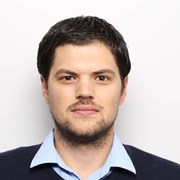During the ongoing energy transition, energy intensive industries in Europe face a major challenge to remain competitive in global markets while drastically reducing their carbon emissions. Conversion of CO2 emissions from these industries to produce high value-added renewable energy carriers is a promising pathway to reduce greenhouse gas emissions. Several conversion processes are at various stages of development, but economic competitiveness remains a challenge due to the high energy demand of these processes. To accelerate the development of energy efficient CO2 conversion processes, the CAPTUS project will develop and demonstrate three complete renewable energy carrier value chains:
- A bioprocess based on a two-stage fermentation to produce triglycerides in a steel plant.
- Lipids-rich microalgae cultivation followed by hydrothermal liquefaction to produce bio-oils in a chemical plant.
- Electrochemical reduction of CO2 to produce formic acid in a cement plant.
In the CAPTUS project, SINTEF will provide the CO2 capture solution for the demonstration of producing formic acid from cement plant flue gases. The technology that will be used is the Continuous Swing Adsorption Reactor (CSAR), an innovative adsorption-based method for efficient CO2 capture using only electricity as energy input. As part of the project, a CSAR pilot developed in an earlier CLIMIT-Demo project (https://norwegianscitechnews.com/2024/11/new-technology-makes-carbon-capture-easier/) will be further optimized and used during the demonstration at the cement plant in Spain. In addition, SINTEF will perform modelling of the CO2 electrolyser developed by the University of Cantabria to assist in its optimization and scale-up.
The CAPTUS consortium consists of 18 partners from 8 different countries, and the project is coordinated by CIRCE, a Spanish research institute. The demonstrations are hosted by ArcelorMittal (steel) in Belgium, HyChem (chemicals) in Portugal and Cementos Portland Valderrivas (cement) in Spain. The project is funded by the European Union Horizon Europe Research and Innovation Program under Grant Agreement No. 101118265.

